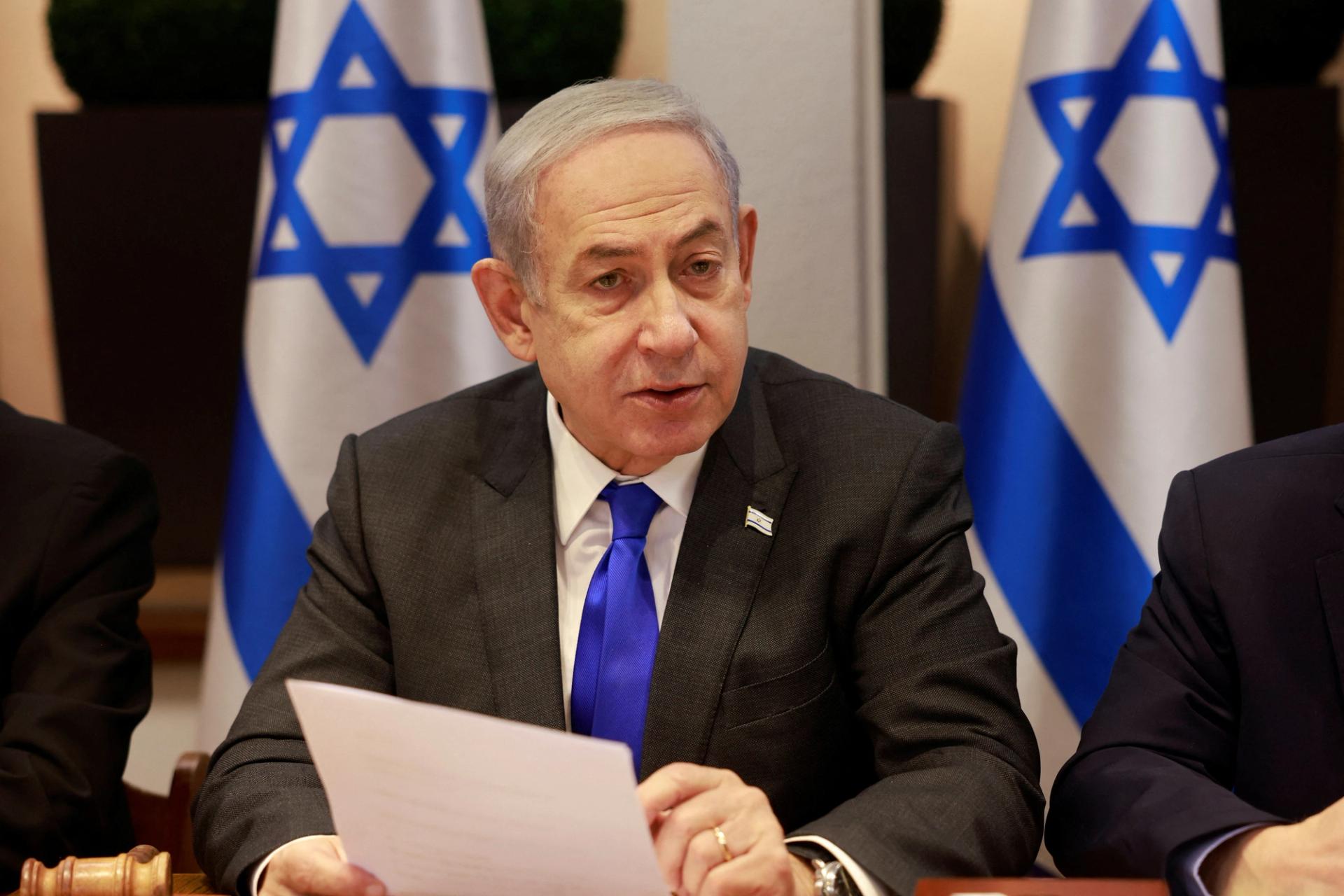The News
The Israeli government, for the first time, signaled its willingness to allow the Palestinian Authority to govern the Gaza Strip after military operations against the militant group Hamas cease.
Israeli Prime Minister Benjamin Netanyahu has repeatedly insisted that the PA can’t return to Gaza due to what he says is the organization’s corruption and failure to condemn Hamas’s October 7 terrorist attack on southern Israel. Netanyahu’s position has increasingly placed him at odds with the Biden administration, which has already begun conferring with the PA’s leadership in the West Bank about its post-war role.
But on Thursday, Netanyahu’s national security advisor outlined a shift in the Israeli government’s position in an editorial published in Elaph, a Saudi Arabia-owned Arabic language news site headquartered in London. The Israeli government’s placement of the piece in Elaph is an effort to communicate directly to Arab governments that are expected to play a central role in financing the reconstruction of Gaza after the war, Middle East officials told Semafor.
“Beyond ensuring the security of our citizens, which we will not compromise on, Israel has no interest in controlling civil affairs in Gaza, and there will need to be a moderate Palestinian governing body that enjoys broad support and legitimacy,” National Security Advisor Tzachi Hanegbi wrote. “It’s not for us to decide who this will be.”
He added: “In its current form, the PA finds this difficult to do, and it will require much work and the assistance of the international community and regional neighbors. We are ready for this effort.”
The PA, and its 88-year-old President Mahmoud Abbas currently run the West Bank but was pushed out of Gaza by Hamas in 2006 following 2006 general elections in the territory. Biden administration officials now say they’d like to see the West Bank and Gaza reunified under a “revitalized” PA leadership as part of a broader post-war process that could resume Arab-Israeli negotiations aimed at creating an independent Palestinian state.
In this article:
Jay’s view
Despite Netanyahu’s contempt for the PA, Israel is facing the blunt reality of either running Gaza itself after the war or ceding control to Palestinian leadership. U.S. and Arab officials say the PA is by far the best positioned to fill this void. But questions remain about who would lead the organization in Gaza and what steps can be taken to lend it legitimacy among Palestinians there.
The Biden administration is already seeking to identify members of the PA’s security forces who’ve served in Gaza to potentially redeploy there, U.S. officials say. National Security Advisor Jake Sullivan met Abbas in Ramallah last week to try and promote reforms within the PA that could bolster its capabilities in Gaza and breathe life back into negotiations to create an independent Palestinian state. The PA hasn’t held a presidential election since 2005, and Israeli officials charge that the organization promotes terrorism through its educational programs and financial support for the families of Palestinians convicted of terrorism.
“There are a number of security personnel linked to the Palestinian Authority, which we think might be able to provide some sort of a nucleus in the many months that follow the overall military campaign,” a senior U.S. official said last week. “But this is something we are discussing with the Palestinians, and with the Israelis, and with regional partners. It very much remains a work in progress.”
Arab officials tell Semafor the PA has been holding discussions with Hamas’s political leadership in Qatar about post-war leadership in Gaza. A member of Hamas’s politburo in Doha told The Wall Street Journal this week that Hamas could potentially enter into a joint-leadership structure with Abbas’s political party, Fatah, as part of efforts to create an independent Palestinian state. “We want to establish a Palestinian state in Gaza, the West Bank and Jerusalem,” Husam Badran said.
Israel and the U.S. have both ruled out Hamas playing any future leadership role in the Palestinian territories. Netanyahu’s government equates the organization with the Islamic State, or ISIS, and has pledged to completely dismantle its political and military leadership.
The U.S. and Arab governments are looking for new blood to eventually replace Abbas. Among the officials are Hussein al Sheikh, the secretary general of the Palestinian Liberation Organization — the overall representative of the Palestinians, and Mohammed Dahlan, who previously oversaw security in the Gaza Strip before Hamas took power. Recent polls have identified political leader Marwan Barghouti, who’s currently jailed in Israel, as the most popular figure in the West Bank.
The View From Ramallah
Mahmoud Abbas said this week that he’s prepared to initiate reforms in the PA and support the reconstruction of Gaza. But he said his organization’s cooperation is contingent upon meaningful steps being taken to resume the long-stalled Middle East peace process. And he’s called for the convening of an international conference focused on achieving a two-state solution, similar to one promoted by the U.S. and Soviet Union in the early 1990s.
“The problem is not changing (Palestinian) politicians and forming a new government, the problem is the policies of the Israeli government,” Abbas told Reuters last week.
Palestinian leaders also hit back at Netanyahu’s disparagement of Fatah’s or Hama’s leadership. “We say to Netanyahu, it’s not Fatah-istan or Hamas-istan, the name is #Palestine, and it will remain Palestine, regardless of whoever wishes to call it that, tweeted Hussein al Sheikh, the PLO’s general secretary.
Notable
- A wartime poll conducted in the Palestinian territories found that 72% of respondents in the West Bank and Gaza believed Hamas was “correct” in launching the October 7 terrorist attack on Israel.
